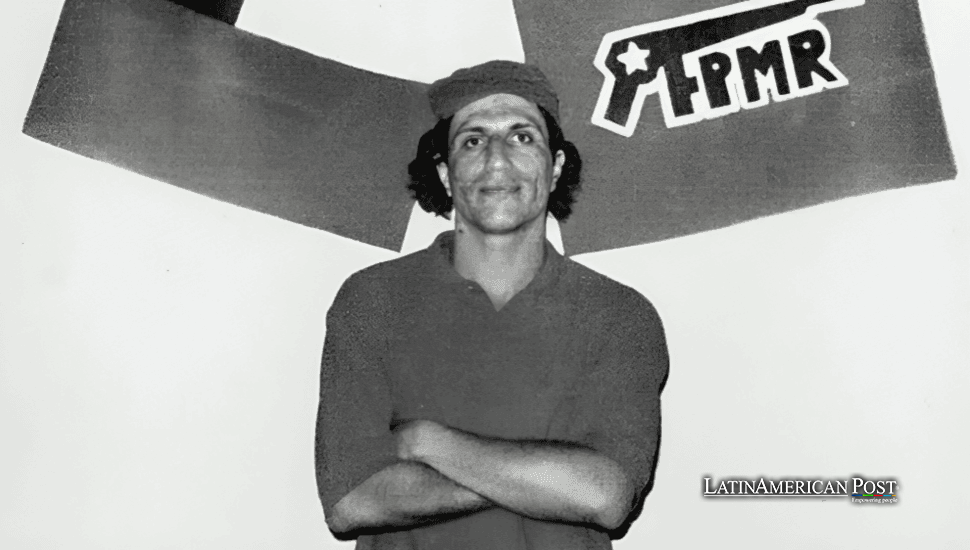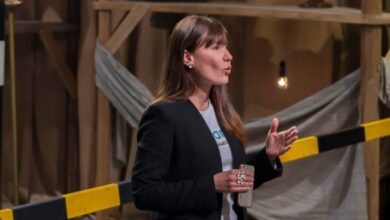Chile Heals Old Wounds Closing The Ultimate Prison Break Case

In 1996, a daring escape from a top security prison still echoes in Chile’s shared memories. The recent arrest of Pablo Muñoz Hoffman brings attention to lingering questions about political violence, justice, and a nation’s ongoing fight to come to terms with its history and identity.
The Capture of a Fugitive
Pablo Muñoz Hoffman, a former militant of the Frente Patriótico Manuel Rodríguez (FPMR), was apprehended in Bolivia after more than two decades on the run. His arrest unfolded when Bolivian security officers noticed him lurking near the Chilean Consulate in La Paz.
He had no official papers, and investigators soon found out he was the last fugitive from a 1996 prison escape that left a lasting mark on Chile’s memory. He went to Chilean authorities ‒ who wanted to hold him accountable for his suspected part in grave crimes like murder and violence with political motives. Muñoz Hoffman’s arrest stirs up fresh arguments about how Chile’s justice system handles acts that blur the line between armed political conflict and ordinary crime.
The Helicopter Escape
The infamous 1996 escape, dubbed the “Flight of Justice,” was as dramatic as it was meticulously planned. Four FPMR members—Muñoz Hoffman, Ricardo Palma Salamanca, Mauricio Hernández Norambuena, and Patricio Ortiz Montenegro—broke free from Santiago’s Cárcel de Alta Seguridad by clinging to a rope lowered from a hijacked helicopter. Two women posing as Irish tourists had chartered the aircraft for a sightseeing excursion over the city. Still, mid-flight, FPMR operatives brandished weapons and forced the pilot to hover over the prison yard.
Gunfire from the helicopter suppressed any potential resistance from the guards, who were caught off-guard by the sudden aerial intrusion. In under a minute, the four inmates were hoisted up, and the helicopter disappeared, allowing them to scatter and flee the country almost immediately. Ever since the “Flight of Justice” has loomed in the public imagination as one of the boldest acts of political jailbreak in Latin American history.
Controversial Histories
The FPMR originated in the 1980s as an armed faction aimed at toppling General Augusto Pinochet’s dictatorship. Even after the return to democracy in 1990, certain members believed that the new political order remained tainted by the authoritarian structure and refused to abandon militant tactics. Their actions included high-profile crimes like the 1991 assassination of Senator Jaime Guzmán, the kidnapping of media heir Cristián Edwards, and attacks on military officials.
These acts led to severe sentences: Ricardo Palma Salamanca and Mauricio Hernández Norambuena both faced life terms, while Muñoz Hoffman and Patricio Ortiz Montenegro were also serving lengthy prison sentences for homicide and other serious offenses. The FPMR argued that political persecution and judicial bias lingered from the dictatorship era.
Critics argued that the group used evil ways in a country trying to recover after almost twenty years of harsh rule. After the 1996 escape ‒ global attempts to bring back the escapees showed more splits. Some nations ‒ saying Chilean courts might be affected by past dictators ‒ gave refuge or stopped sending them back. Others helped ultimately ‒ like Brazil with Hernández Norambuena. French courts, however, refused Chile’s request to send back Palma Salamanca ‒ making people angry who thought he should be judged for killing Senator Guzmán.
A Nation’s Ongoing Reckoning
Muñoz Hoffman’s recent arrest once again stirs the debate over political violence and justice in Chile. Even though many years have gone by since Pinochet left, deep issues like strict control, shaky laws, and unresolved human rights problems still hang over the country.
This ongoing atmosphere makes it hard to punish old crimes, especially those by extreme groups claiming political rightness. Now that Muñoz Hoffman faces charges at home, people in Chile wonder if today’s courts give a fair trial beyond past unfairness.
Also Read: Latin America Faces Tuberculosis Surge Fueled by Mass Incarceration
The result might change how society views the FPMR’s history and, more generally, how Chile deals with its tricky recent history. As the nation moves forward, the “Flight of Justice” tale shows that moments lasting just a minute can echo through the years, testing the threads of memory, identity, and the search for proper healing.





